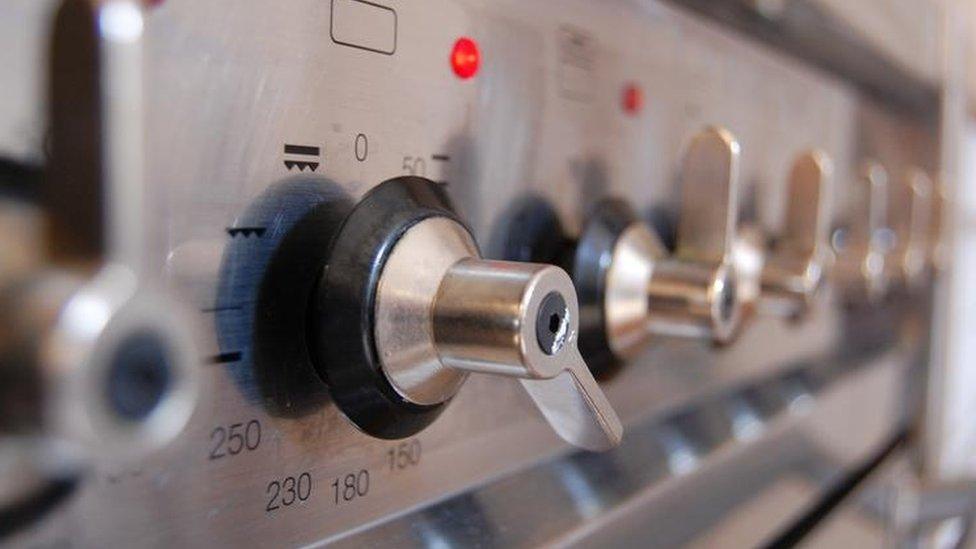'Dangerous' energy idea finds its time
- Published
- comments

Shares in Centrica plunged nearly 5% this morning as the market had its first chance to react to the news that a Conservative government would intervene in setting energy prices if elected. An idea once described as "very dangerous" by senior Tories will be in its own election manifesto.
It is the starkest example yet that Theresa May has not been bluffing when she has promised to redefine the Conservatives as the party of the worker and consumer.
When Ed Miliband made a similar promise before the 2015 election, it was argued by then Conservative energy minister Michael Fallon that it was a return to the Labour politics of the 1970s and would drive away much needed investment in the UK's energy infrastructure.
But it seems that a failure to reduce the stubbornly high number of customers on the most expensive tariffs (a whopping 74% of British Gas and 91% of SSE customers are on the standard variable rate) and a wave of price rises this spring have prodded a Conservative government into something that would have been hard to believe just a couple of years ago.
The energy firms can't claim they weren't warned. At last autumn's Conservative Party conference. Mrs May warned companies not to exploit "failures in the markets in which they operate". Everyone knew she was talking about the energy market. Just last week, the business secretary warned of a "muscular response" to dysfunctional markets.
Customer inertia
Why is the energy market so dysfunctional? There are six big competitors, dozens of smaller ones, loads of comparison sites and several Ofgem probes have been conducted. Still the Competition and Markets Authority found 70% of consumers disengaged in the choice of their energy supplier - despite being written prompts on bills to shop around.
It's not the only industry where suppliers benefit from customer inertia. Bank accounts have even lower switching rates, but energy bills are higher - both in cash to the customer and in terms of political profile.
The detail on policy remains sketchy. Unlike Ed Miliband's policy it will be a cap rather than a freeze. That means that if energy prices come down, so might prices. But it is not necessarily a cut as it will reflect market conditions - which means it might not be a hard number - but within some sort of range.
The energy industry insists that this move could jeopardise investment and the big falls in energy company share prices today show investors see lower profits ahead.
The companies will be hoping that the political bark of a cap will be worse than its financial bite.
The government will be hoping that voters care more about a "get tough" election promise than they appear to care about switching supplier.